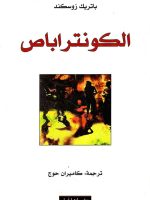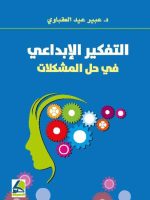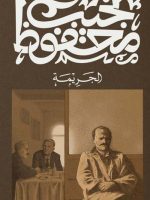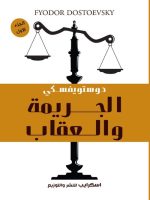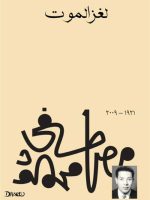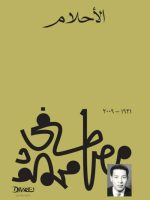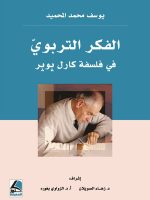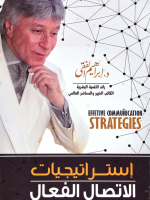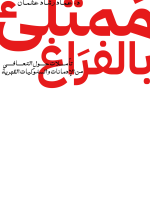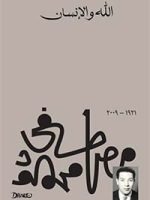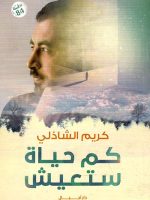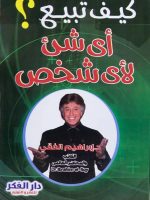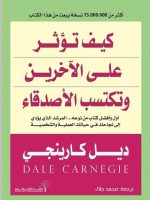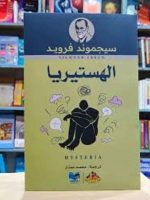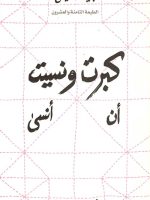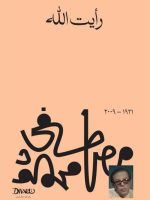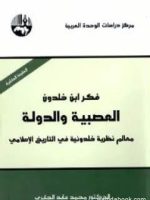-
ContraBass
د.ا3.55It is an internal monologue that reflects the struggle of isolation and alienation through a musician who suffers from the monotony of his life and his mysterious relationship with his musical instrument.
د.ا4.97 -
Crazy parades
د.ا2.13Gibran’s literary style was characterized by smooth words, simplicity of expression, the use of all linguistic formulas and styles, and the frequent use of metaphors and figures of speech. Perhaps the most important feature of Gibran’s literary works is creativity in the art of photography. We find many beautiful, imaginative artistic images full of deep meanings and expressions covering his literary works; because he was an artist and painter who initially depicted the idea and then created it. Gibran relied on two styles in his literary works: the first is characterized by strength and revolution against beliefs and customs and the call for freedom, and the second is characterized by the love of enjoying life and the call to follow inclinations
د.ا3.55 -
Crime
د.ا5.00A contemplative novel that delves into the depths of the human psyche, exploring the effects of crime on the characters and their relationships within a complex social and cultural context.
-
Crime and Punishment in Two Parts
د.ا10.65A novel that explores the depths of the human soul, reviewing an existential moral conflict between conscience and crime through the story of a poor student who commits a murder.
د.ا12.78 -
Death Mystery
د.ا2.84The Mystery of Death is a book by Mustafa Mahmoud in which he discusses death through a scientific and philosophical vision, and believes that death and life are two sides of the same coin, we die every day, as millions of cells die inside our bodies without us feeling them, and this is called the smallest death, and the book is divided into chapters such as the puzzle, the thread, time and the soul.
د.ا4.26 -
Dreams
د.ا2.13The Book of Dreams is one of the most famous books of Dr. Mustafa Mahmoud. It is an interesting and interesting book, which began with dreams and their interpretation from a purely philosophical point of view, with a scientific presentation characterized by ease, mastery and high quality.
د.ا3.55 -
God and man
د.ا2.84God and Man is a book featuring a collection of essays by the Egyptian writer Mustafa Mahmoud published by Dar Al-Maaref in 1955. The book of God and Man is a great controversy and has been banned from circulation in Egyptian libraries and still does. Mustafa Mahmoud was accused of atheism because of him, which the writer later denied, while admitting that he could not realize the truth of faith before, as he was on a journey in search of God, which he began by studying the different religions through the three monotheistic religions, and Islam was the last of them. The writer expressed this truth in his book «My Journey from Doubt to Faith» and said that he never denied the existence of the divine self, but he could not imagine its truth until after a strenuous journey of research that took thirty years of the realization of thought, reconsideration, and then reconsider the reconsideration, and said critically to himself, that if he heard the voice of instinct Joan, but perhaps he rea
د.ا4.26 -
How many lives will you live
د.ا4.12It is a motivational book that reviews the ways of thinking that can change the life of an individual and make him live more effectively.
د.ا4.97 -
How Successful People Think
د.ا6.00A practical guide that summarizes the thinking strategies that distinguish successful people and helps you develop yourself.
د.ا6.50 -
How to Sell Anything to Anyone
د.ا2.56A book that provides effective strategies and techniques in the arts of selling and persuasion, with a focus on understanding customer needs and building long-term relationships with them.
د.ا3.55 -
How to Win Friends and Influence People
د.ا4.97Carnegie had been conducting business education courses in New York since 1912.[3] In 1934, Leon Shimkin, of the publishing firm Simon & Schuster, took one of Carnegie’s 14-week courses on human relations and public speaking, and later persuaded Carnegie to let a stenographer take notes from the course to be revised for publication.[3] The initial five thousand copies of the book sold exceptionally well, going through 17 editions in its first year alone
د.ا7.10 -
I grew up and forgot to forget
د.ا6.50A novel that explores the effects of psychological trauma and lost memory on a girl searching for her identity and truth.
د.ا7.00 -
I loved and tomorrow I will recover from abusive relationships.
د.ا7.00It addresses the journey of recovery from abusive romantic relationships, using a psychologically reflective approach that helps the reader understand and heal.
-
I saw God
د.ا2.13I saw God is a book written by Dr. Mustafa Mahmoud in which he talked about the journey of one of the Sufi imams, Muhammad bin Abdul-Jabbar bin Al-Hassan Al-Nafari, through his book Positions and Correspondences, which is one of the main pillars of Sufism. The role of Dr. Mustafa Mahmoud in this book is to comment only on what came from the book of positions by Al-Nafari, and this book clarifies many things and questions about some Sufi ideas through this journey that Dr. Mustafa Mahmoud offers us to one of their imams, and these things include: divine love and the relationship of the Sufi with God, and so on. The book takes the reader on a luminous journey of meditation, spirituality and the monologue of God.
د.ا4.26 -
Ibn Khaldun’s Thought, Asabiyyah and the State
د.ا9.94The author of the book states that after spending ten years in the company of Ibn Khaldun’s Muqaddimah, he concluded that: There are still many angles that need more research despite the many studies and writings about Ibn Khaldun and his most famous book, the Muqaddimah. He also concluded that corrections must be made to return Khaldunian thought to its original framework and preserve its entirety and true identity. And its readings according to the circumstances of his social experience, his personal concerns, and his modern context.
He also pointed out through his research the methodological error that many of Ibn Khaldun’s admirers have fallen into, and we mean by that looking with the eye of the present, and starting from contemporary thought, to the opinions and theories mentioned in the Muqaddimah in social, political, and economic affairs. As well as understanding his terms and expressions in a way that deviates from his purpose, and distances them from the scope of his interest and the molds of his thinking. In his view, most Khaldunian studies rarely look at Khaldunian thought as a whole, but rather they often look at his opinions in this field independently and separately from his opinions in other fields.
